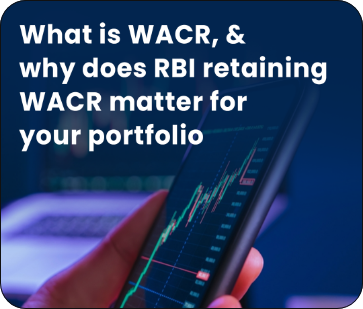
Mutual funds vs smallcases: Which is smarter for wealth creation?
Globally, mutual funds are the comfort food of investing. In India alone, they've swelled to ₹57 trillion AUM by the end of 2023, up nearly sixfold in a decade (AMFI).
So what do they promise? Diversification, professional management, and the reassurance that "experts" are handling your money.
But here's the catch! Convenience doesn't always mean performance.
In fact, most actively managed equity mutual funds underperformed their benchmark indices over the last decade.
Investors stuck to the "safe" route often got market-average results, minus fees.
Meanwhile, smallcase investments are gaining more popularity amongst investors. These are curated, theme-based baskets of stocks that sit directly in your demat account.
They blend the discipline of a strategy with the thrill of owning stocks directly.
In this article, we dive into how mutual funds aren't the smartest investment option and how smallcase compares to this.
Table Of Contents:
The reason behind the popularity of mutual funds
Safe isn't smart! And yet mutual funds are amongst the most popular investment options. Let's figure out why!
Ensured diversification & professional management
Mutual funds pool money from lakhs of investors to buy dozens of stocks and bonds.
Even with small contributions, you get access to a broad portfolio that's professionally managed.
This shields you from the risk of holding just a handful of stocks, which could sink if one company falters.
Has low barriers to entry
You can start investing with as little as ₹500 a month through SIPs. That means even first-time investors or young professionals can begin building wealth without waiting to accumulate a big lump sum.
Offer liquidity & regulated by SEBI
You can redeem your funds on any business day, and the industry is tightly regulated.
Investors know their money isn't locked in a black box. There are rules for disclosure, valuation, and oversight. This sense of security is why mutual funds are considered "safe" by so many.
Highly convenient for passive investors
For people who don't want to track stocks, mutual funds are "set and forget."
You let a fund manager do the work, researching, rebalancing, and timing the market while you go about your life.
How's smallcases as an alternative?
A smallcase is a curated basket of stocks or ETFs built around a specific idea, theme, or strategy, like renewable energy, debt-free companies, or growth momentum.
Unlike a mutual fund, where you only hold fund units, a smallcase gives you direct ownership of the underlying stocks in your demat account.
This structure makes smallcases a compelling alternative for investors who want:
- More transparency: You can see every stock and its weight in real time.
- Greater control: Add, remove, or adjust stocks whenever you choose.
- Thematic exposure: Invest in focused ideas that mutual funds may overlook.
While mutual funds are designed for hands-off investing, smallcases appeal to those who want a more active and flexible approach to wealth creation, with the potential for higher returns if the theme performs well.
Choose the best smallcase company offering the best alternative investment method for mutual funds leveraging expert-curation, research-backed and fundamental-driven portfolio management.
Comparing an average mutual fund performance to an average smallcase performance
Mutual funds
Midcap mutual funds have recently delivered more substantial long-term returns and better risk-adjusted profiles than smallcap ones.
Over ten years, many actively managed equity funds underperformed their benchmarks; only around 32% beat the indices.
Smallcases
Some well-managed smallcases have delivered a CAGR of around 35%+ over 3 years.
For example, PINC Momentum Fundamental shows around 33.8% 3-year CAGR (as of July 2025), albeit with high volatility.
According to WeekendInvesting analysis, some smallcase strategies have returned 105% when the benchmark delivered 87%.
However, the tax on short-term gains for small cases is 15%, compared to mutual funds' 10% LTCG rate for equity sold after 12 months.
Mutual funds vs smallcase: A brief comparison
The following table demonstrates the difference between the mutual funds and smallcase based on various features:
| Feature | Mutual Funds | Smallcases |
|---|---|---|
| Control | Fund manager decides | Investor owns and can modify individual stocks |
| Diversification | Broader, across sectors & asset classes | Theme-based, more concentrated |
| Costs | Expense ratio ~1–2.5%, exit loads | One-time fee, brokerage per transaction |
| Transparency | Holdings disclosed monthly | Real-time visibility of stocks and weights |
| Flexibility | Limited, exit restrictions | Highly flexible—buy, sell or rebalance anytime |
| Tax (equity gains) | 10% LTCG after 12 months | 15% short-term capital gains |
What do you get with smallcases that you don't get with mutual funds?
Here's what you get with a smallcase investment that you don't get with mutual funds:
You get direct ownership & transparency
When you buy a smallcase, the stocks land directly in your demat account.
You see each company and its weight in real-time. No waiting for monthly fact sheets, and no mystery around where your money is parked.
Investors have flexible control over their investment
Unlike a mutual fund, where you can only buy or sell the entire unit, smallcases give you total control.
Want to exit one underperforming stock but hold the others? Done. Want to rebalance early because you're cautious? Easy.
There are Lower recurring costs
Mutual funds charge an expense ratio every single year, whether they perform or not.
With smallcases, you only pay brokerage on transactions and a nominal subscription if applicable. This means more of your money is compounding for you.
Smallcase offers thematic focus & agility
Smallcases are built around clear themes such as momentum, debt-free companies, sectoral bets, or macro trends like "China+1 manufacturing."
This allows you to capture specific opportunities that a broad mutual fund might miss while following a disciplined framework.
Ensure faster reaction to market signals
When markets shift, smallcases can be rebalanced more quickly.
For example, PINC Momentum Fundamental portfolio focuses on stocks showing strong earnings traction and can update more nimbly than a mutual fund that rebalances quarterly or biannually.
Faces customised risk exposure
With smallcases, you can stack multiple strategies to fine-tune risk, combine a momentum strategy with a defensive dividend play or a sectoral bet with a broad-based compounder.
It's like building your own multi-fund portfolio but with sharper control.
Conclusion
So in short, mutual funds give comfort and ease whereas smallcase promises control, clarity and diversity.
It offers the opportunity to get high returns on your investment, even through market volatility, if you diversify your portfolio well.
Mutual funds can be good for passive investors. However, they are often limited, and you have to cough up significant recurring costs as well.
Smallcase investment, on the other hand, offers flexibility, transparency and tolerability towards short-term volatility and tax rates.
All you have to do is choose a reputable investment advisor to leverage this investment method.
We at PINC Wealth are a leading wealth management advisory firm offering research-backed, expert-curated smallcase portfolios to help you achieve your financial goals. Start your investment journey today!
Related Articles

How will the US Fed rate cut impact inflation, Indian markets and your investment portfolio?
US Fed rate cuts influence Indian markets, currency trends, and smallcase stocks. Explore sectors that benefit, risks, and smart investment strategies for 2025.
Know more
What is WACR, and why does RBI retaining WACR matter for your portfolio?
Understand WACR and RBI's revised liquidity framework. Learn how these monetary policy changes impact your smallcase investment and portfolio returns.
Know more
‘Bite-sized’ smallcase investments: Low entry-cost portfolios for new and young investors
Making investment even easier and simpler with ‘bite-sized’ smallcase portfolios. Here’s a guide for beginners on how to start and build long-term wealth.
Know more
Top portfolio risk assessment tools and techniques that every smallcase investor should know
Learn about the top portfolio risk assessment tools and techniques that every smallcase investor should know to analyse and manage the potential risk, and how financial advisors help in this effectively.
Know moreMeet the people
we served!
PINC Compounder Smallcase has simplified my investment journey. Seriously, investing has never been easy for me! Here in a single click, I could access a balanced portfolio. Thanks PINC.
Mr. Akhilesh
I was hesitant about investing, but PINC Smallcase changed that. Talking to their team and looking at their growth gave me confidence. I've seen my investments grow steadily since then. I'm impressed!
Devendra Palan
As someone with limited knowledge about the stock market, I found Pinc smallcase to be a reliable and accessible platform. Their detailed reports and analysis have given me a deeper understanding of the stocks in my portfolio. I feel confident in managing my investments.
Pratik Gandhi

Subscribe to our email list
Sign up for Expert Insights
Your Gateway to Smarter Wealth
Management!
Looking to grow your wealth with
PINC Smallcase?